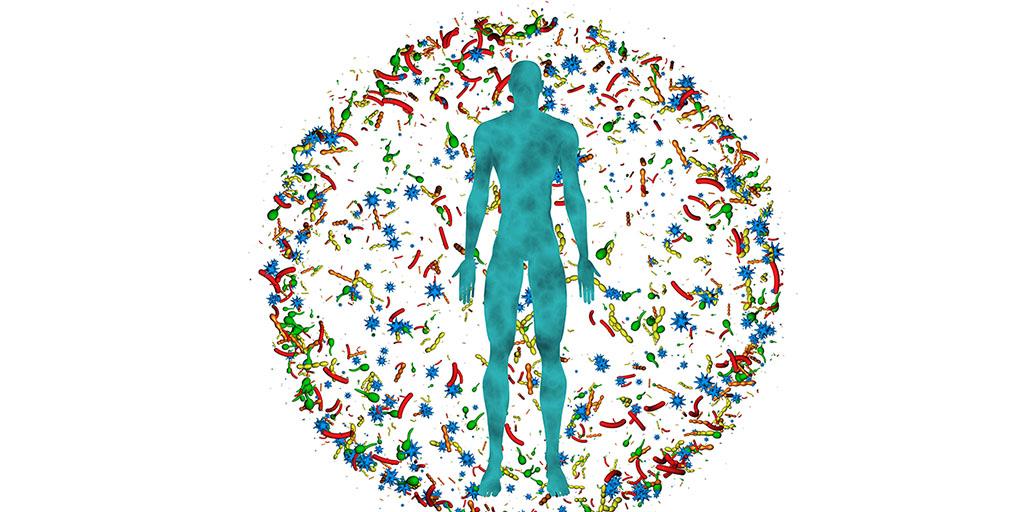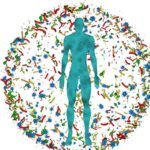
Imagine if teh tiny creatures living inside you held the key to your overall health and fitness. Sounds like science fiction, right? But what if we told you that the trillions of microorganisms residing in your gut, skin, and other organs are not just passive inhabitants, but active participants in your well-being? The human microbiome, a complex ecosystem that’s been shrouded in mystery, is slowly revealing it’s secrets, and the findings are nothing short of astounding. For decades, we’ve been waging a war against bacteria, using antibiotics and sanitizers to eliminate them from our lives. But have we been fighting the wrong enemy? As it turns out, the microbes that call our bodies home are not just harmless hitchhikers; they’re essential partners in maintaining our health.
The story of the human microbiome begins in the 17th century,when Antonie van Leeuwenhoek,a Dutch tradesman and amateur scientist,first discovered microorganisms using his handcrafted microscopes. For centuries, the study of microbes was largely focused on the ones that made us sick. It wasn’t until the advent of advanced DNA sequencing technologies that scientists began to uncover the vast diversity of microorganisms that live within and around us.The Human Microbiome Project, launched in 2008, marked a critically important turning point in this field, as researchers set out to catalog and understand the complex communities of microbes that inhabit the human body. As the project progressed, it became clear that the human microbiome is not just a collection of individual microbes, but a dynamic ecosystem that interacts with our bodies in profound ways.
One of the most significant discoveries to emerge from this research is the crucial role that the gut microbiome plays in our overall health. The trillions of microbes that reside in our digestive tracts are responsible for breaking down complex carbohydrates, producing certain vitamins, and regulating our immune systems. But that’s not all – they’re also involved in producing hormones that influence our mood and appetite, and even modulate our brain function. Studies have shown that an imbalance of the gut microbiome,also known as dysbiosis,is linked to a range of conditions,from obesity and diabetes to anxiety and depression. For example, research on mice has demonstrated that those with an altered gut microbiome exhibit changes in behavior and brain chemistry, highlighting the intricate connections between our microbes and our minds.
As scientists continue to unravel the mysteries of the human microbiome, they’re uncovering surprising links between these microbial communities and various aspects of our health. Take, as a notable example, the connection between the skin microbiome and acne. Research has shown that individuals with acne have distinct differences in their skin microbiome compared to those with clear skin. Similarly, studies have implicated the gut microbiome in the growth of certain autoimmune diseases, such as rheumatoid arthritis. The implications are staggering - if we can understand how to manipulate the microbiome to promote health, we might potentially be able to develop novel treatments for a range of conditions.Experts are now exploring the potential of fecal microbiota transplantation, a procedure that involves transferring fecal matter from a healthy donor into a patient’s gut, to treat conditions like Clostridioides difficile infection.
Some potential benefits of a balanced gut microbiome include:
Improved digestion: A healthy gut microbiome can help break down complex carbohydrates and absorb essential nutrients.
Boosted immune system: The gut microbiome plays a crucial role in regulating our immune systems and preventing disease.
* Enhanced mental health: Research has shown that the gut microbiome is linked to mental health conditions such as anxiety and depression.The real-life impact of microbiome research is already being felt. Companies are now developing probiotics and prebiotics that claim to support gut health, while others are working on novel therapies that target specific microbes. Though,with great power comes great obligation - the manipulation of the microbiome is a delicate task,and there’s a risk of unintended consequences. As we continue to learn more about the human microbiome, it’s clear that a nuanced approach is needed.Rather then trying to eliminate certain microbes, we should be working to promote a balanced ecosystem that supports our overall health. This might involve simple changes to our diet and lifestyle, such as incorporating fermented foods or avoiding unneeded antibiotics.
As we look to the future, the potential of microbiome research is vast.Scientists are now exploring the role of the microbiome in areas as diverse as cancer treatment and mental health. For example, research has shown that certain microbes can influence the effectiveness of cancer immunotherapy, while others may play a role in the development of neurodegenerative diseases like Parkinson’s.The possibilities are endless, and as our understanding of the human microbiome continues to grow, we’re likely to uncover even more surprising connections between our microbes and our health. By embracing this new frontier in health and fitness, we may just unlock the secrets to a longer, healthier, and happier life.
#HealthFacts #MicrobiomeMystery #GutHealth #FitnessJourney #WellnessStory #MedicalMystery #ScienceOfFitness #InfographicStory #HealthTransformation #MicrobiomeRevolution #WellnessWednesday









